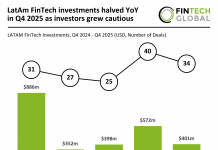UK-based CLOWD9 has launched the world’s first cloud-native, cloud certified, decentralised, payments processing platform.
It describes itself as an enabler for banks and FinTechs, providing them with unrivalled controls, functionality and data with global coverage by design.
Suresh Vaghjiani, Cosmo Spens, Artur Grabowski, Robert Hampel and Peter Selman founded CLOWD9 to transform the global payments system.
It claims that innovation within payments has typically focused on front-end systems. This means back-end systems have been left fragmented and lacking truly global solutions.
CLOWD9 was built on the cloud and has a decentralised model that allows virtual access to the platform around the world, via ‘instances’, with payments transactions routed to the nearest cloud instance. These instances are available in every continent.
It is designed with open APIs and uniquely built with microservices architecture. These microservices enables CLOWD9 to scale up and down according to transactional demand, making its platform more energy efficient and resilient compared to legacy architecture.
The technology enables real-time transaction monitoring, customised data reporting, as well as enhanced controls for the end user, including spending limits down to individual items purchased at the point of payment.
CLOWD9 founder and CEO Suresh Vaghjiani said, “CLOWD9 was founded on the belief that by deconstructing complex, legacy based payments technology, we could build a new generation payments platform, that can more efficiently service the fintech and banking sectors globally.
“As a team, we have each experienced the pain points created by the legacy technology that underpins much of the payments processing industry. Addressing those challenges is central to our mission as a business – creating a platform that is fit for purpose, using modern technology to create maximum efficiency for our clients.
In other PayTech news, Searches for ‘delete PayPal’ have exploded by 1,392%, following the announcement of its $2,500 fine for spreading misinformation.
Copyright © 2022 FinTech Global











